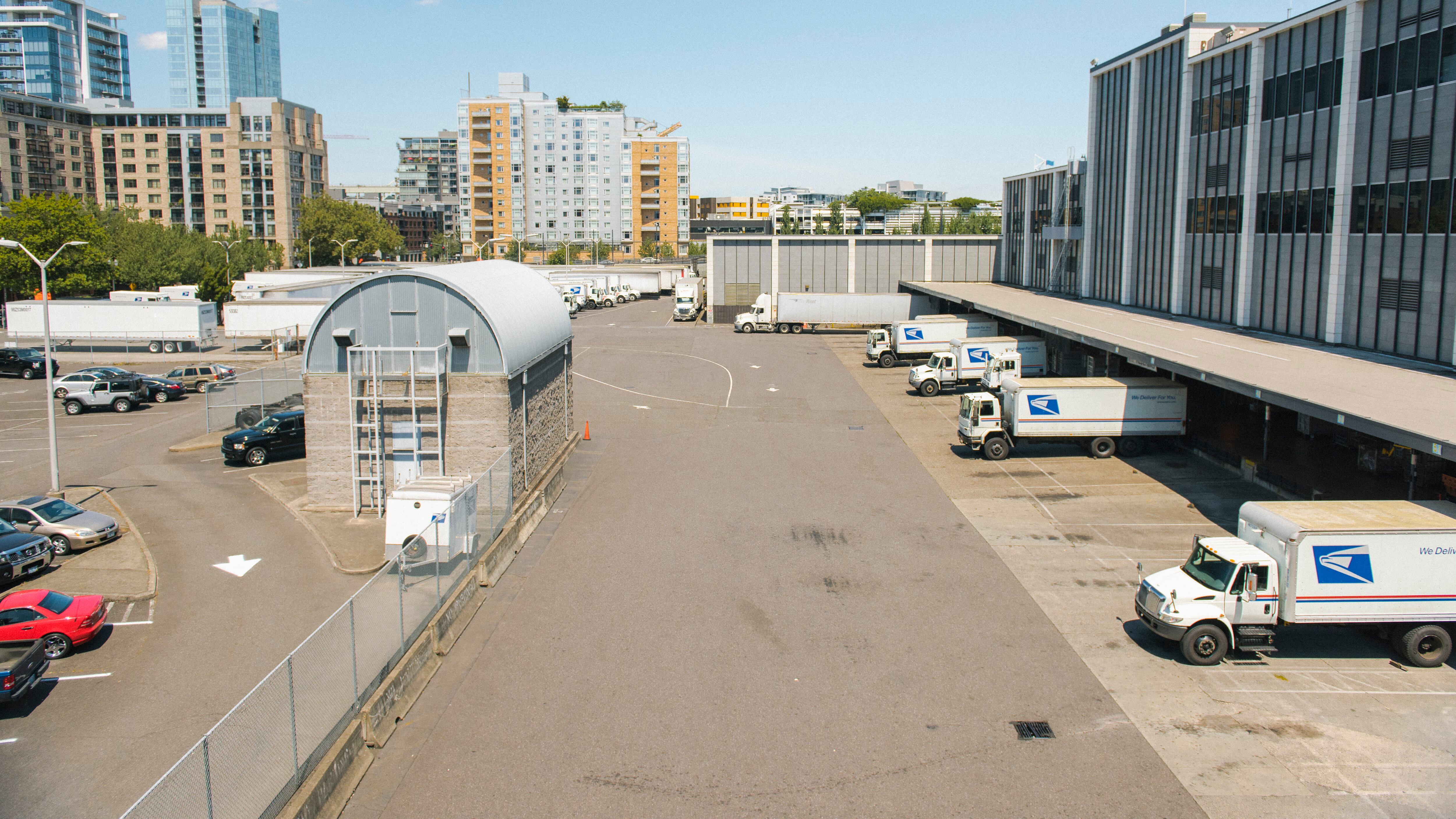Last week’s announcement by Prosper Portland that the developer Continuum Partners was pulling out of an agreement to redevelop the 14-acre U.S. Post Office site in the Pearl District left a big hole downtown.
Greg Goodman, whose family owns more than 20 downtown blocks, expressed misgivings about the city partnering with Continuum, a Denver company, in 2018 when the deal was signed. Goodman told WW then he thought the city’s redevelopment agency erred in passing over a bid from a partnership between the Melvin Mark Cos. of Portland and Related Cos., a massive New York developer.
“You had the equivalent of the 1927 Yankees wanting to do business in Portland,” Goodman says. “Instead, we went with the Hillsboro Hops.”
Continuum’s strikeout leaves several pressing questions at the city’s center.
What is the immediate impact of Continuum’s withdrawal?
Prosper Portland paid $88 million for the post office site in 2016. That’s a lot of cash to have tied up in what is now basically an unused parking lot. The plan was for Continuum to buy a big chunk of the dirt as it developed new office space. But now that won’t happen, leaving Prosper still owing $35 million to the city’s general fund. Meanwhile, Prosper spokesman Shawn Uhlman says the agency is paying the city nearly $1 million a year in interest.
What happens next?
Uhlman says Prosper will try to replace Continuum. “We’re optimistic that we will be able to find one or more new partners,” Uhlman says. “The timeline for land sales proceeds will generally remain as previously assumed.”
Goodman is skeptical. “There’s millions feet of office space available downtown right now,” he says. “There’s no market for it.”
Prosper just completed a request for proposals and plans to demolish the old post office starting late this year or early next. Goodman, again, is skeptical. He says construction prices, including demolition, are extraordinarily high right now. Instead, he and others, including Mark New, who have spent their careers managing and developing real estate and stand to lose if it declines in value, would like to see the city use the space as a large safe-camping spot for people who are homeless.
What’s stopping the city from establishing a homeless camp there?
Putting aside the likely tsunami of NIMBYism that such a decision would provoke, there are practical concerns.
First, Prosper says the soil under the post office needs to be cleaned up before humans can live there. “The site was previously a railyard, including a manufactured gas plant. Prosper Portland has a consent judgment with the Oregon Department of Environmental Quality which prohibits ‘residential use of any type,’ until contamination is fully addressed,” Uhlman says.
Second, the city plans to build 720 units of affordable housing on a portion of the 14-acre site partly funded by the 2018 Metro housing bond. That places a ticking clock on demolishing the post office. “Metro bond resources are required to be used within a certain time frame pursuant to the Metro bond requirements and may not be available for use if the demolition and infrastructure work does not proceed in a timely manner,” Uhlman says.
Finally, the U.S. Postal Service still operates a small retail outlet on the site, and its trucks must have unfettered access.
New demurs. “It’s starting to sound like Wapato 2.0, where those responsible for properly running this community are looking for excuses for not implementing the correct policy,” he says.

